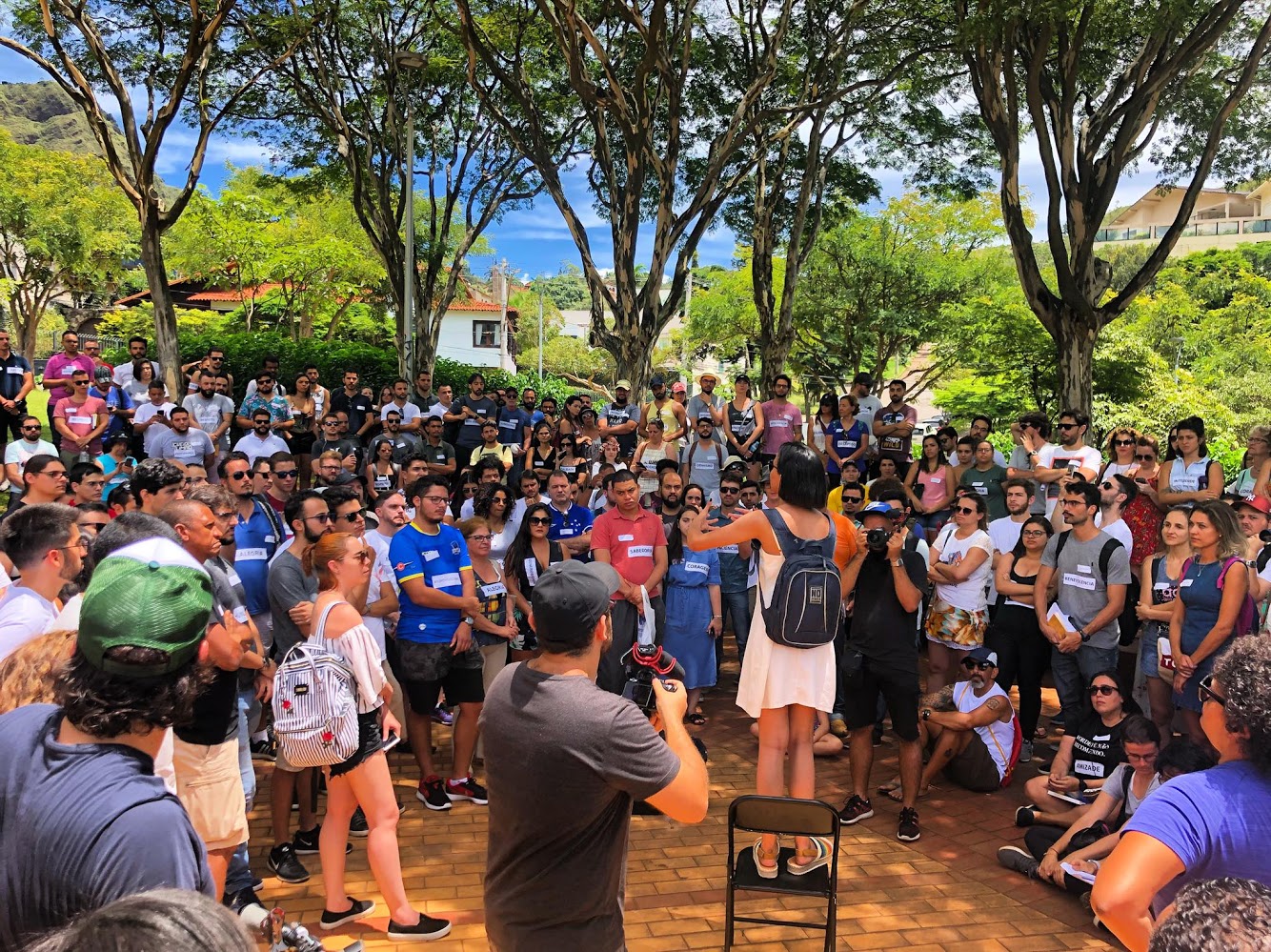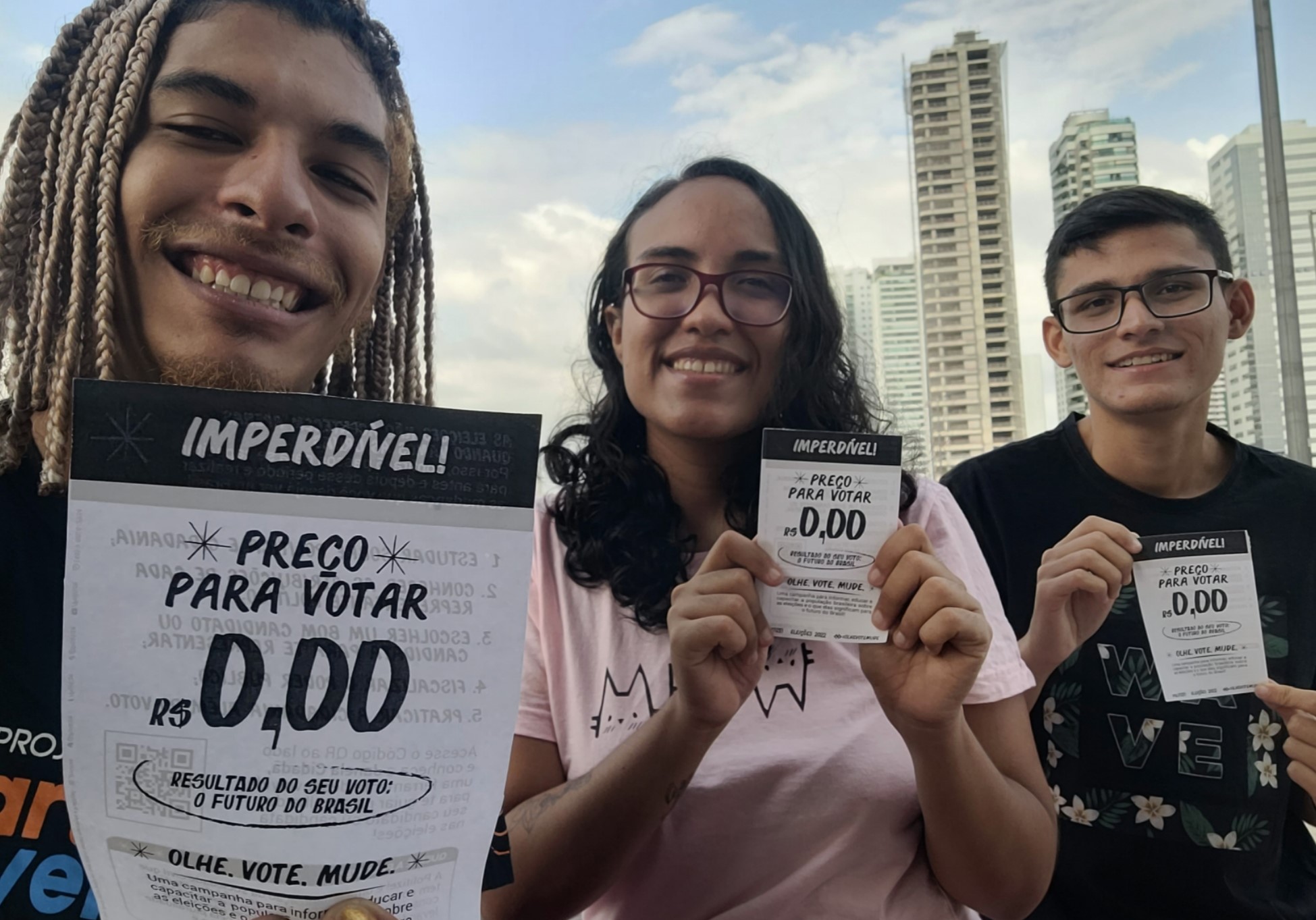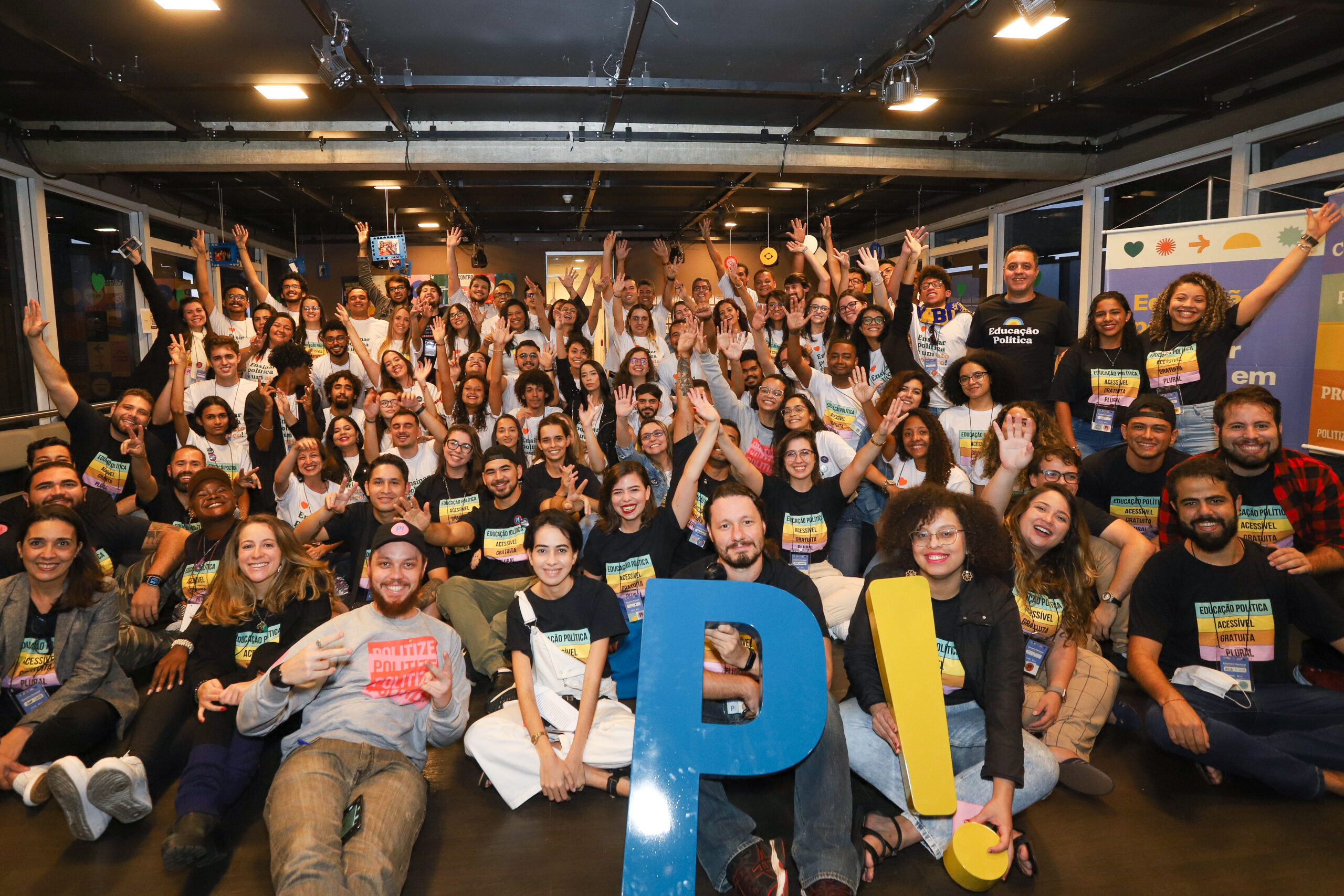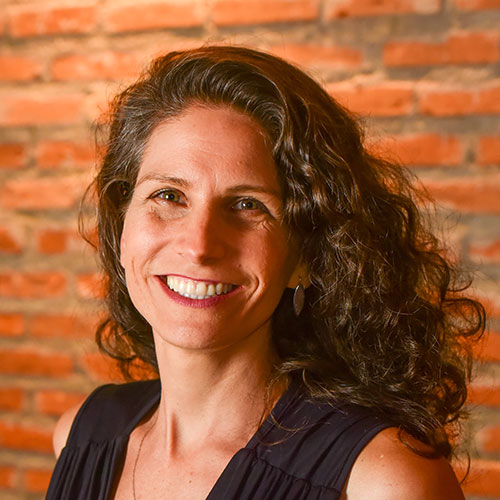Keeping an eye on democracy, Politize trains leaders to operate across the country
Political education is provided through content and workshops, aiming to ensure the plurality of dialogue


Politize is a civil society organization that promotes political education and trains leaders for democracy throughout Brazil. The organization emerged in 2015, under the impact of the large demonstrations of 2013, better known as Jornadas de Junho. “There we realized that people were individuals, but they were not citizens, they did not know how to participate in politics, even don’t know what democracy meant”, remembers Luiza Câmara, communications manager at Politize.
Operating on multiple fronts, the organization began its activities with the production and dissemination of content. With publications on tax reform, distribution of votes by parties, and abuse of political power, the goal is to spread knowledge about political systems in a pluralistic way.
Their articles on Communism and Nazism, for example, are still among the most accessed on the internet to this day. Currently, in addition to content, Politize also promotes political training and mobilization for young leaders. Through the Programa Embaixadores Politize, the organization focuses on citizenship to train people capable of solving public problems.

Politize
Founded by the administrators Diego Calegari and Gabriel Marmentini, the Politize portal has already produced and published more than three thousand pieces of content about politics and democracy, including texts, videos, infographics, webinars and courses. With an imperative name, it also trained around 2,500 people in political education and created 600 public policy proposals.
The app “Mais 60,” for example, was created in this context by leaders from Fortaleza (CE). With the goal of facilitating access for the elderly population to local public services, the app was approved by the government’s Legislative branch and is now awaiting approval from the Executive branch to be implemented.
For Luiza, this is a promising example of how Politize operates. “When we form citizen leadership and offer tools that encourage the creation of public policies, we are training a person capable of solving a problem of common interest,” she says.
Plural dialogue
The training includes lessons about political and party ideology, law-making, public budgeting, among other topics. After this introduction to the concepts of institutional politics, the emphasis shifts to pluralistic dialogue. Using the methodology of Nonviolent Communication, the hope is that people with differing political views learn to talk with each other.
The target audience is the young people: “They have less crystallized thoughts and convictions, they seek change and have the energy to make it happen,” Luiza says. To participate youe must be at least 16 years old, but there is no age limit for the training.
Among its partners and supporters are Instituto Mattos Filho, Civicus, National Endowment for Democracy (NED), Konrad Adenauer Stiftung (KAS), Galo da Manhã, and others. Politize also offers political training for companies and organizations.


The youth and the politics
According to Luiza, “the most democratic thing in Brazil is the unpreparedness for democracy.” For her, much of this is due to a lack of knowledge and also opportunities. Therefore, those who participate in the training also conduct political education workshops with their family, friends, work colleagues, in church, in English courses, etc.
“With that, we keep multiplying this knowledge”, Luiza shares. In addition to the trainings, Politize has been promoting campaigns to encourage students to get their voter IDs. The campaigns include activities in schools to explain the roles of councilors, mayors, deputies, and senators. “We want to show that there are paths for dialogue in politics and awaken civic leadership,” she argues.
Politize has also entered into cooperation agreements with eight states to train teachers and produce content for the New High School curriculum, adopted by the federal government in 2022. With the new teaching curriculum, the hours for basic education lessons have decreased, making room for elective subjects.
For these subjects, Politize produced content on citizenship, fake news, environment and sustainability, financial education, law and justice, among others. The collaboration was established with the states of São Paulo, Amazonas, Roraima, Acre, Bahia, Sergipe, Distrito Federal, and Mato Grosso.
Citizenship and Democracy
Politize is an organization made up of nearly 50 collaborators, most of whom are between the ages of 20 and 30. The headquarters is located in Florianópolis (SC) but there are collaborators working remotely from various cities across the country. The main objective of the organization is to promote knowledge about citizenship and democratic principles.
Without party orientation and maintaining political ideological neutrality in its content, Politize does not aim to train and launch candidates. “We defend freedom of expression in the press, respect for laws and institutions and for elections to be fair, clean and inclusive”, says Luiza Câmara.
For her, it’s important that different parties can maintain a pluralistic communication and that political polarization in Brazil decreases: “Here we don’t launch candidates, we work with individuals so that they become citizens, and if at some point that person decides to run for office, they will be equipped to be a public servant prepared for dialogue and for the construction of fairer public policies for their city,” she concludes.


Want to support this cause?
Visit the Politize website!



